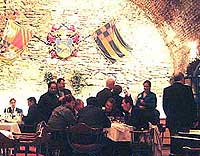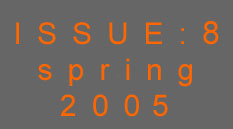

RRFM 2005
From 10-13 April, around 200 engineers and research
reactor operators from 29 countries across 4 continents congregated
in Budapest for the ninth annual RRFM (Research Reactor and Fuel
Management) conference. Most attendees were from Europe, but a
large delegation of Americans were also present at this specialised
conference. They were primarily interested in the transportation
and storage of spent fuel.
The RRFM 2005 agenda centred around 4 main sessions.
At the end of the conference, Paul Gubel, the Programme Committee
Chairman summarised the main messages of the 4 sessions as follows:
Session 1 (International
Topics) confirmed that research reactors will still be needed
for a long time, whether it be for testing materials for innovative
power reactors or for the production of radio-isotopes. The replacement
of ageing research reactors must, therefore, be envisaged. At
the same time, the risk of highly-enriched fuel being diverted
for malicious purposes must be countered. Measures such as the
Nuclear Threat Initiative are being implemented for this purpose.
Session 2 (Fuel development,
qualification, fabrication and licensing) provided an update
on the status of development of high-density UMo fuels. The swelling
problems previously encountered gave rise to a number of applied
R&D programmes in several countries, including France, the
Russian Federation and the USA. The objective is to have a UMo
fuel licensed by 2010.

Session 3 (Reactor operation,
fuel safety, core conversion) highlighted the difficulty
of reactor conversion. There are still 105 research reactors to
be converted by 2014.
Session 4 (Spent fuel management,
back-end options, transportation) heard the announcement
that the US take-back programme would be extended by 10 years.
Other topics presented during this session included the definition
of optimal reprocessing parameters, the confirmation that research
reactor fuel can be reprocessed, the characterisation of corrosion
behaviour and the experience gained by various countries relative
to storage and final disposal."

|
Among the many quality
presentations we would like to single out the one entitled
"Out of pile French research programme on the U-Mo/Al
system: first results," by a team of 10 researchers
from the CEA, the University of Rennes (France) and AREVA.
Several inventions by H. Bonnet, Head of
the Belgian Institute for |
Radio Elements, are also worthy of note. Bonnet
drew the attention of participants to the threat to the continuity
of supply of radio-isotopes that the current conversion programme,
coupled with the gradual phasing out of ageing high flux reactors,
poses.
Next year, RRFM will take place in the Bulgarian capital, Sofia,
from 23-26 April.

|










